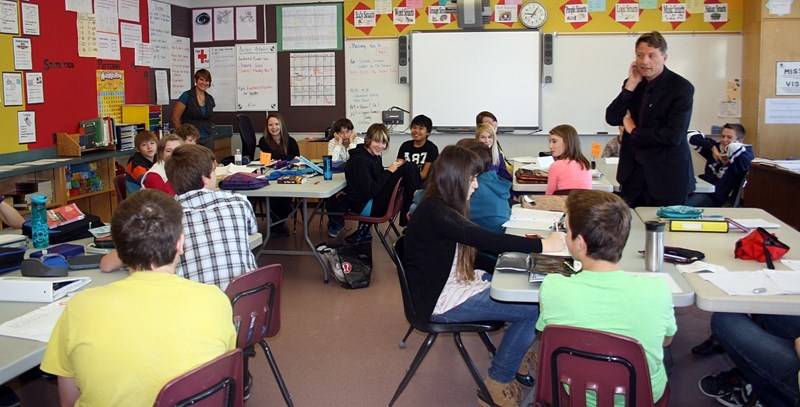The Chinook's Edge School Division is expected to take a serious look within the next year at the way elementary and middle school students are graded.
But it won't budge from the percentages system already in place for high school students across the division.
“We have no intention of moving away from percentages at the high school level,” said Kurt Sacher, superintendent of schools for Chinook's Edge.
The issue of how students' marks are assessed made headlines in the province last month when trustees from the Camrose-area Battle River School Division voted unanimously to reinstate the traditional system of using percentages to grade students.
The school board introduced a system of achievement levels (a four-level grading system) at the beginning of the school year for many schools. However, the percentage system was brought back following concerns the grading system was hindering Grade 12 students when applying to college or university.
Throughout the Chinook's Edge School Division in the elementary and middle schools there is a mix of assessment practices, including the percentage system and the levels approach, which often uses terms like proficient, developing, satisfactory and unsatisfactory to assess a student's academic performance.
“In those communities where principals and staff have worked with their parents and they are using levels that are working for them, then that is fine to go down that road if that is working in the community,” said Sacher, adding while the board has a general administrative procedure around assessment it is not prescribed by policy.
“I definitely think it needs to be more prescriptive and that is something we need to deal with. At the moment it is a little bit inconsistent and I think there is definitely some work we can do in that area to be more consistent across the division.”
However, Sacher also concedes that having a “conversation” with staff, parents and communities around the assessment issue must be dealt with carefully as there could be push back from everyone who is satisfied with existing assessment systems in place and how they are working for their school, community and students.
“That is why we have not gone at a real quick pace to try to prescribe what an assessment or reporting practice should look like in every community in our school division, because they are all so different in what the needs of our parents are,” said Sacher.
“Honestly, at least at our level, we are not getting complaints from the public about how our schools are reporting. If there is not a big issue, if it's not broken why fix it, you know?”
But Sacher is convinced there is a need to at least have the discussion, noting the current provincial government initiative on curriculum redesign that could result in its overhaul over the next few years.
“Any time you revisit curriculum you need to be revisiting assessment practice and procedures,” said Sacher, noting the issue is on the school board backburner until next school year while senior officials work on other priorities.
“The one thing I would say that is so important to get out there is that we really believe in working with our parents and our students. We are reporting to them. Whatever changes we are going to make we want to bring them along with us.”
“I don't know if I see a radical change of any sort,” he added. “I don't see that at all but the discussion needs to happen.”




